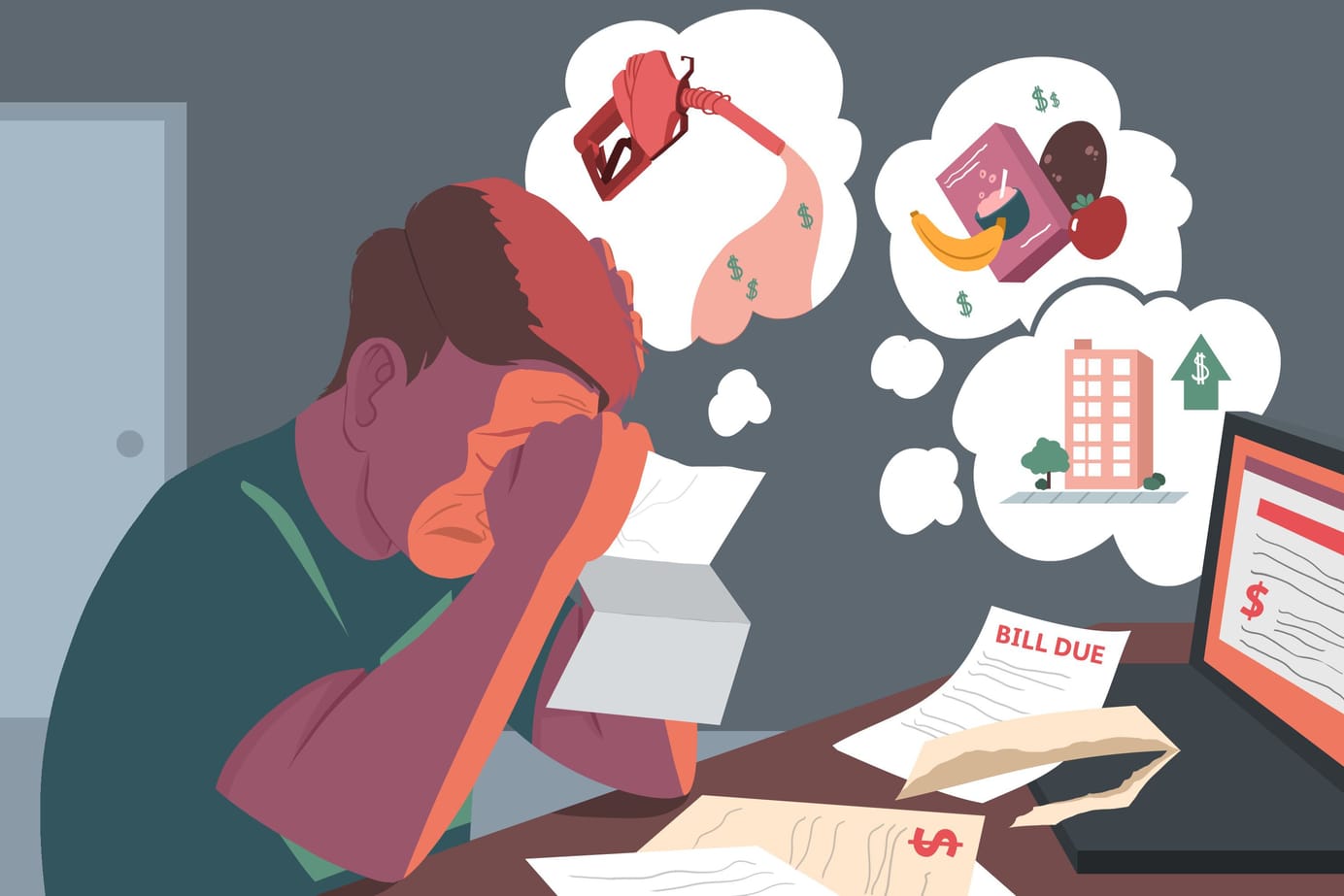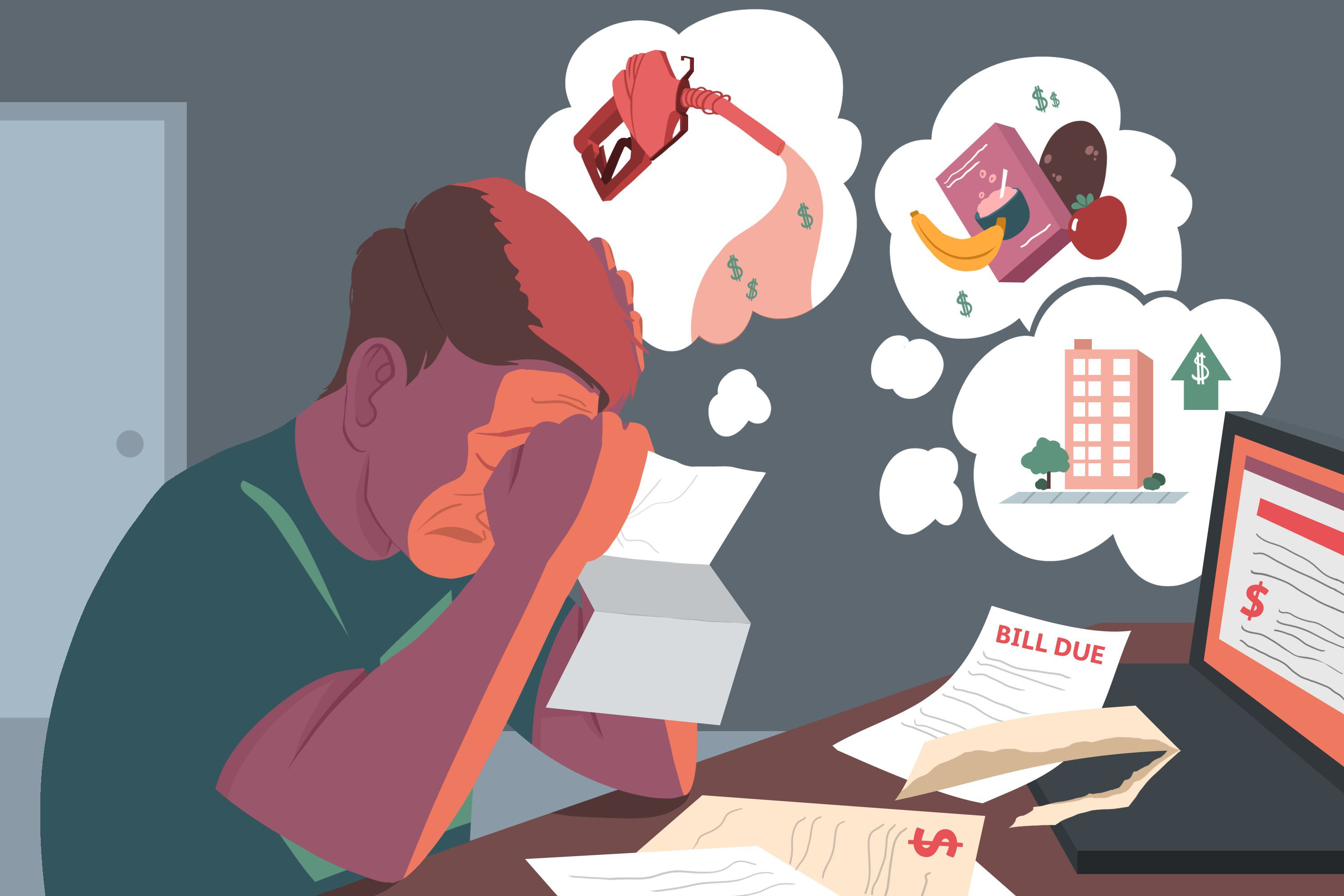
Inflation’s Impact on Movement Building
Part III: State of Labor Movements
🤓 Bite-Sized Knurd: Inflation is more about corporate greed and monopolies than the pandemic and The Fed’s response is mainly hurting working and middle-class families. These realities and misinformation about the issues hurt progressives.
Read on for more…
If you are a human who relies on money to get the basic things you need, then you’ve probably noticed that things have gotten more expensive this year. And you probably know when the price of goods and services rises, that is called inflation.
I’m sure you’re very sick of hearing about inflation. I sure am!
But it’s too important not to talk about. So humor me this week as we briefly explore the issue and how it impacts movement building.
Corporate Greed is Accelerating Inflation

There are many reasons why prices are up. If you step back and think about it, a world-altering global pandemic that shut down most of the world for months at a time would naturally cause some issues.
Inflation began because of the macro factors of the pandemic:
- It became harder and more expensive to move goods around (supply chain & gas prices)
- Resources like lithium needed for cell phone batteries became harder to get
- Worker stoppages (like China’s lockdowns) impact the number of goods that can be produced
But there’s a much bigger more nefarious reason that inflation has continued and only gotten worse: corporate greed.
“Corporations are using the excuse of inflation to raise prices and maker fatter profits” - Robert Reich
The U.S. government began the process of deregulation during the Reagan years and never stopped, meaning they removed laws like consumer protection, anti-monopoly, environmental protection, etc. to make it easier for businesses to make money.
Well, deregulation helped consolidate industries so that only one or a few companies control entire industries. For example, only four conglomerates currently control 85% of the nation’s meat. Inflation of meat grew by 7.5% compared to last year, which allowed Tyson Foods to boost its profits by 48%.
That’s insane! When people are struggling to have enough for their grocery bills (i.e. the foods we need to live), the largest meat companies have double-digit profit growth.
But you know what’s not causing inflation? Higher wages.
So that means the cost of goods is much higher, but people are getting paid the same so they actually have less money to spend.
The Fed’s Response Hurts the Working Class
Sadly, the inflation story is about to get a lot worse for lower and middle-class people.
The Fed has been using interest rates to tamp down on inflation… that didn’t go so well last time.
When interest rates go up, it makes it more expensive to borrow money, which means the cost of credit card debt, vehicle financing, mortgages, and other loans rises. Who borrows money or hold credit card debt? That’s right, lower and middle-class people.
The Fed is using a screw to fix the economy when they should really be using a sledgehammer on corporations.
What’s really needed is a windfall profits tax (tax corporations on the excessive profits) and greater antitrust enforcement (to reduce the monopolies) to hold the real culprits accountable: corporations.
So in summary:
- Costs are going up
- Corporations are raking in record profits
- Wages are stagnant
- The Fed is causing the cost of borrowing to go up
- Families suffer
- Potentially leading to a recession
Inflation Harms Progressive Movements
So what does this all have to do with progressive movements?
One of the world’s most finite resources is time. We only have 24 hours in the day and we need part of that to sleep so we can still function.
So when you think about it, higher inflation causes us to spend more time thinking about money. Either you need an extra job to pay the bills or you’re spending time stressing about money, that is time lost on things you want to actually be doing.
All of that financial stress means you are less likely to have the energy to volunteer and do the work of movement building in your community. You’re less likely to take that non-profit job that you’re really excited about because you need to make a certain salary. It also means people have less discretionary income to donate to organizations to help grow their programs.
The massive wealth gap that has only accelerated since the pandemic is making it harder for us to do the work that we need to do to create a safe, empathetic, livable world.
We will all suffer because of this. The climate crisis doesn’t care if you’re rich or poor. Future pandemics don’t either. It’s on all of us to raise our voices on the massive inequality in our country and world. Until we solve the wealth gap, much of our problems can’t be solved to the extent they need to be.
Next Week: Climate + Labor: the intersection of climate justice
The Good Knurd:
Now's your chance to join in on the action! Thoughtful ways to influence change within yourself and your local community.
- 🤔 Thought Starter: Robert Reich is a great resource to understand how monetary policy hurts working-class people. Check out his video explainer on inflation.
- 🫂 Support: Groundwork Collective is an organization taking on this very issue. Learn more about them and support their work.
the roots of change media Newsletter
Join the newsletter to receive the latest updates in your inbox.



